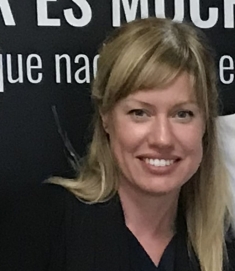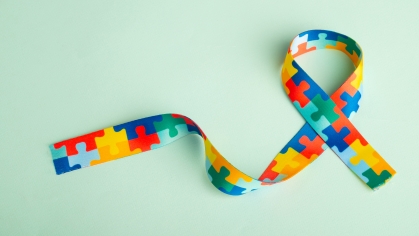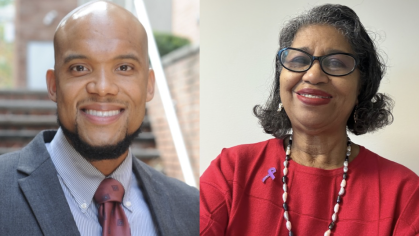
Rutgers School of Social Work’s Committee for Inclusion, Intersectionality, Diversity, Equity and Advancement (IIDEA) aims to advance the School’s initiatives that further inclusion, intersectionality, diversity, equity, and advancement. Assistant Professor Emmy Tiderington explains her role on the committee and why she is committed to diversity, equity, and inclusion initiatives at the School and beyond.
What do you hope to contribute to the IIDEA Committee?
I’m planning to contribute a listening ear and a willingness to acknowledge some of the hard truths about where we’re at with DEI issues here at Rutgers. And I’m committed to moving beyond symbolic talk to “walking the walk” of this work so that we can make real structural changes both within the School and the wider university that will have a lasting positive impact on our faculty, students, and staff. Changing institutions is never easy, but if we don’t address these issues at a system-level within large institutions like Rutgers, we will always fall short of achieving diversity, equity, and inclusion, and instead continue to perpetuate racism and other forms of oppression.
Why are diversity, equity, and inclusion initiatives important to you?
DEI is important to me not only because this is a matter of justice, but also because, in my personal experience, this is what can make a community, an institution, or a country truly great. Grappling with our differences and finding our shared humanity is what makes life richer, and I don’t think you can really get that on the same level in more homogenous settings.
As a social work professor, what should students know about the role of diversity, equity, and inclusion in the field of social work?
As social workers, we have an ethical mandate to engage with issues of diversity, equity, and inclusion, as these are inherent aspects of the values and principles that are laid out in our professional code of ethics. For example, the NASW Code of Ethics specifically states that “social workers are expected to challenge social injustice,” including around the issue of discrimination. And the Code calls on us specifically to “promote sensitivity to and knowledge about oppression and cultural and ethnic diversity.” So, if you’re entering this field, you should come ready to engage with and learn about DEI issues, and when you practice as a professional social worker know that you will be expected to actively seek out opportunities to address these issues. That is what makes social work so unique within the helping professions, that DEI work and the pursuit of social justice is part and parcel of what we do.
Are there any actions people can take right now to more fully commit to diversity, equity, and inclusion?
I think if everyone took a moment to reflect honestly on if and how their current daily life includes actions that promote DEI, we’d all be a lot better off. Obviously, big policy changes are critical to these efforts, but I think that making small changes within our day-to-day lives is also what’s going to get us a lot closer to achieving genuine diversity, equity, and inclusion. If you can’t name the action that you took today to promote DEI in your personal life, large or small, then it’s important to dig a little deeper and think about what else you can do. You don’t have to be a policymaker to make a difference. We can all do something toward these ends.



